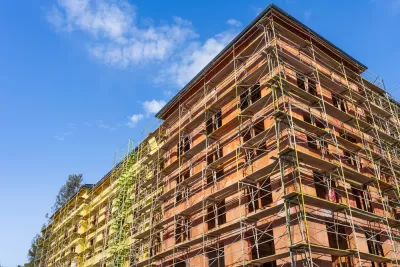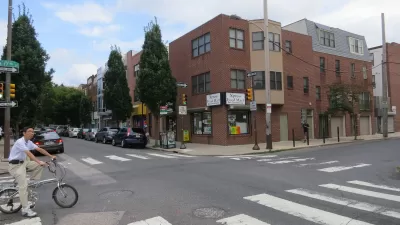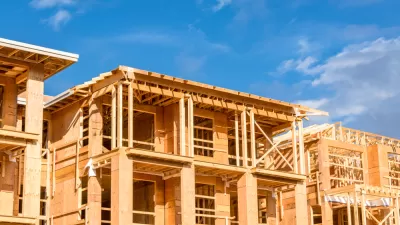A new study by researchers at the Urban Institute finds new evidence that upzoning produces housing supply and reduces costs, while downzoning does the opposite.

A study published recently in the journal Urban Studies has produced “the first cross-city panel dataset of land-use reforms” to quantify the impact on housing supply and rents.
The study is behind a paywall at the journal, but from the study’s abstract, we can see that the study used machine-learning algorithms to search U.S. newspaper articles between 2000 and 2019, merging the data with U.S. Postal Service and Census data.
“We find that reforms that loosen restrictions are associated with a statistically significant 0.8% increase in housing supply within three to nine years of reform passage, accounting for new and existing stock,” according to the abstract.
The Urban Institute also wrote up the study for an article on their own website, providing further insight into the study’s methodology and findings. For example, the resulting increase in housing supply is greater at the higher end of the market, and the research finds “no statistically significant evidence that additional lower-cost units became available or became less expensive in the years following reforms.”
Still, the benefits still manage to spread to other parts of the market, according to the study: “impacts are positive across the affordability spectrum and we cannot rule out that impacts are equivalent across different income segments.”
The study also found the converse to be true: “reforms that increase land-use restrictions and lower allowed densities are associated with increased median rents and a reduction in units affordable to middle-income renters.”
The new research is the latest in an ongoing debate, central to the political debate happening between pro-development political forces (i.e., YIMBYs) and those opposing developments, including both anti-displacement and neighborhood character protection groups.
FULL STORY: Land-Use Reforms and Housing Costs

Alabama: Trump Terminates Settlements for Black Communities Harmed By Raw Sewage
Trump deemed the landmark civil rights agreement “illegal DEI and environmental justice policy.”

Study: Maui’s Plan to Convert Vacation Rentals to Long-Term Housing Could Cause Nearly $1 Billion Economic Loss
The plan would reduce visitor accommodation by 25% resulting in 1,900 jobs lost.

Planetizen Federal Action Tracker
A weekly monitor of how Trump’s orders and actions are impacting planners and planning in America.

Grand Rapids Mayor Proposes Garage Conversion Plan
The mayor says allowing homeowners to convert garages to dwelling units could alleviate the city’s housing shortage.

Baltimore Ordered to Improve Sidewalk Accessibility
The city is one of many to face lawsuits for failing to comply with the Americans with Disabilities Act.

This Toronto Suburb Has More Bus Riders Than Columbus, Ohio
Brampton, Ontario used gradual improvements in service to prove that if you build it, they will ride.
Urban Design for Planners 1: Software Tools
This six-course series explores essential urban design concepts using open source software and equips planners with the tools they need to participate fully in the urban design process.
Planning for Universal Design
Learn the tools for implementing Universal Design in planning regulations.
Smith Gee Studio
Alamo Area Metropolitan Planning Organization
City of Santa Clarita
Institute for Housing and Urban Development Studies (IHS)
City of Grandview
Harvard GSD Executive Education
Toledo-Lucas County Plan Commissions
Salt Lake City
NYU Wagner Graduate School of Public Service





























